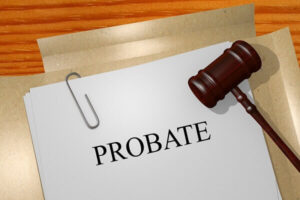
If you find yourself worried that loved ones will be burdened with credit card debts or other bills in your name, you can help protect them by including those debts in your estate plan. Not all debts are paid upon death; instead, it comes down to the type of debt, the creditor, and the funds the estate has on hand to pay.
The Estate of the Deceased Is Responsible for Paying Debts
First, you do not have to worry about a creditor coming after someone in your family for your outstanding debts. You are the borrower; therefore, you are the only party the estate can come after for the funds.
Once a person passes away, their estate is responsible for paying any outstanding bills or debts. The estate includes all assets owned by the deceased, which may include real estate, investments accounts, bank accounts, and other assets that could be sold to pay an outstanding debt balance.
However, not all debts are handled this way. Instead, it will depend on the type of debt, whether there is a cosigner, and where you live.
When the Executor Pays the Debts Using Your Assets
In most cases, any debts in the deceased’s name will be paid using estate assets. Assets may be liquidated to pay down the balance, and the executor will use all assets available to satisfy those debts. If they do not have enough assets to cover the debts, the creditor may have to write off that debt as a lost cause.
They cannot go after family members, with the exceptions listed in the next sections, for the remaining balance. Therefore, if someone dies with numerous credit cards maxed out and no assets to sell to pay for them, the credit card companies will have to close the accounts and go on without payment.
There are exceptions here. Loved ones may have to pay the balance due, depending on two exceptions:
How the Type of Debt Impacts Who Pays for the Balance after Death
The type of debt may determine who is responsible after death. Here are some instances where certain debts may be the obligation of another party aside from the deceased:
- Home Loan – Any home loan with a joint owner means that the party who co-signed on that mortgage will be responsible for either resuming/maintaining the payments or paying off the balance. If there is no joint owner, but someone will inherit that home, the party inheriting it can take over the mortgage payments. In cases where there is no joint owner or beneficiary to the home, the executor can sell the home and use the sale to pay off the mortgage and any extra would be divvied up to beneficiaries.
- Credit Cards – Once the estate has no funds left to pay the credit card, it can close out and there is nothing creditors can do. If, however, there is a joint credit account, the joint owner is responsible for the remaining balance. Authorized sellers are not.
- Vehicle Loans – The lender can repossess the vehicle if payments stop; therefore, the executor will typically sell the vehicle to pay off the loan. If someone is inheriting that vehicle, they can work with the lender to take over payments.
- Student Loans – Private student loans are only paid by the estate with the funds they have. If someone co-signs on a student loan, however, that co-signer will be responsible for paying. Some lenders, such as Sallie Mae, have a forgiveness system in place when the borrower dies.
Where You Live and How That Might Affect Bills
Anyone living in a community property state may be forced to pay bills for their spouse that accrued during their marriage, regardless of if they are listed as the co-owner or co-signer. Luckily, New York is not a community property state. Debts that occurred before the marriage in a community property state are not the spouse’s obligation.
Not All Assets Go toward Debts
Certain assets are not used to pay down debts, and those include retirement accounts and life insurance policies. These automatically pass to the named beneficiary and are not part of probate; therefore, the funds in those accounts cannot be used to pay debts. That said, in instances of joint ownership mentioned above, a creditor may go after that family member for the remaining balance and they will be forced to use those funds (or any funds available to them) to pay off the debt.
Protect Your Loved Ones with an Estate Plan
If you want to protect your family members from possibly paying for your debts or losing their inheritance to your debts, contact an attorney.
The right estate plan puts into motion a plan for paying off debts, protects loved ones from creditor seizures, and ensures that they are taken care of. Whether you want to give a loved one your home or a large sum of money, one of the best things you can do is avoid probate altogether.
Attorney, Andrew M. Lamkin, P.C., can help you create a trust that protects your assets, ensures loved ones get their inheritance, and that they do not endure the length and cost of probate court.
If you would like to start your estate plan, or you would like to look at options for protecting your assets, contact Andrew M. Lamkin, P.C., to schedule your no-obligation case evaluation. You can also send a message online through the online contact form.


